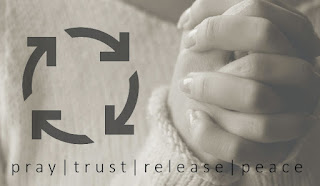Instead of various types of meetings and whatnot, we're going to try an intentional disciplemaking approach called ONRAMP.
You can find details about upcoming ONRAMP gatherings and RSVP HERE.
You can find details about upcoming ONRAMP gatherings and RSVP HERE.
But here's a brief description of how it will work…
 Our lives are busy and chaotic, and it's hard to find time to slow down, take a deep breath, and consider big ideas. Our lives are so complex that we barely have time to think big - especially when it comes to God stuff. But the big ideas matter; God stuff matters.
Our lives are busy and chaotic, and it's hard to find time to slow down, take a deep breath, and consider big ideas. Our lives are so complex that we barely have time to think big - especially when it comes to God stuff. But the big ideas matter; God stuff matters.
If you're like us, you've tried and tried to find a way to think more deeply about God stuff - blogs, Bible studies, small groups, Sunday school, online discussions - but it's a little like trying to parachute into the middle of a speeding interstate highway…
Enter ONRAMP.
ONRAMP is a safe way to exit your daily chaos and merge into the deeper streams of God.
You don't need to be a Bible scholar or a career theologian to understand this stuff. You just need to slow down and enter into conversation with others who are looking for the same things. It's not rocket science. That's why Jesus said, "My yoke is easy, and my burden is light.”
Join us at ONRAMP. Slow down. Have a drink. Think deep. Explore.
- - - - -
- - - - -
Without being a slave to structure, our ONRAMP gatherings will reflect the following values and hold to the following format:
VALUES
VALUES
Dialog | Dependence | Discovery | Discipline
We'll value dialog.
We'll value dialog.
No one person, not even the ONRAMP facilitator, will be allowed to dominate the conversation. This will be a discussion, not a lecture. And it'll be a safe place to share and self-discover.
We'll value dependence.
While this is a Christian-led exploration of Bible texts, we'll depend on the Spirit to "lead us into all truth." So we'll be less worried about correcting people than about encouraging the free exchange of ideas.
We'll value discovery.
We believe the writer of Hebrews, when he says, "The Word of God is alive and active." When we open the Bible and wrestle with its contents, truth will continually rise to the surface. And that's what we're looking for.
We'll value discipline.
We think following the Way of Jesus is an intrinsic good. And in order to do that in our busy lives, we need to develop habits and practices that help us follow him. We hope ONRAMP will be one of those practices.
- - - - -
FORMAT
At each gathering, we'll spend a few minutes breaking the ice and getting to know each other.
Then we'll use a predictable method to explore a particular passage from the Bible.
We'll read the passage aloud and then ask the following five questions:
You’ll be amazed at how these five questions open up the text and draw insight from it.
Join us at ONRAMP!
We'll value discovery.
We believe the writer of Hebrews, when he says, "The Word of God is alive and active." When we open the Bible and wrestle with its contents, truth will continually rise to the surface. And that's what we're looking for.
We'll value discipline.
We think following the Way of Jesus is an intrinsic good. And in order to do that in our busy lives, we need to develop habits and practices that help us follow him. We hope ONRAMP will be one of those practices.
- - - - -
FORMAT
At each gathering, we'll spend a few minutes breaking the ice and getting to know each other.
Then we'll use a predictable method to explore a particular passage from the Bible.
We'll read the passage aloud and then ask the following five questions:
- What does this tell us about God?
- What does this tell us about people?
- What else did we learn?
- If we believe this is true, what might we do differently?
- If we put this into practice, what would be the challenges/benefits?
You’ll be amazed at how these five questions open up the text and draw insight from it.
Join us at ONRAMP!







